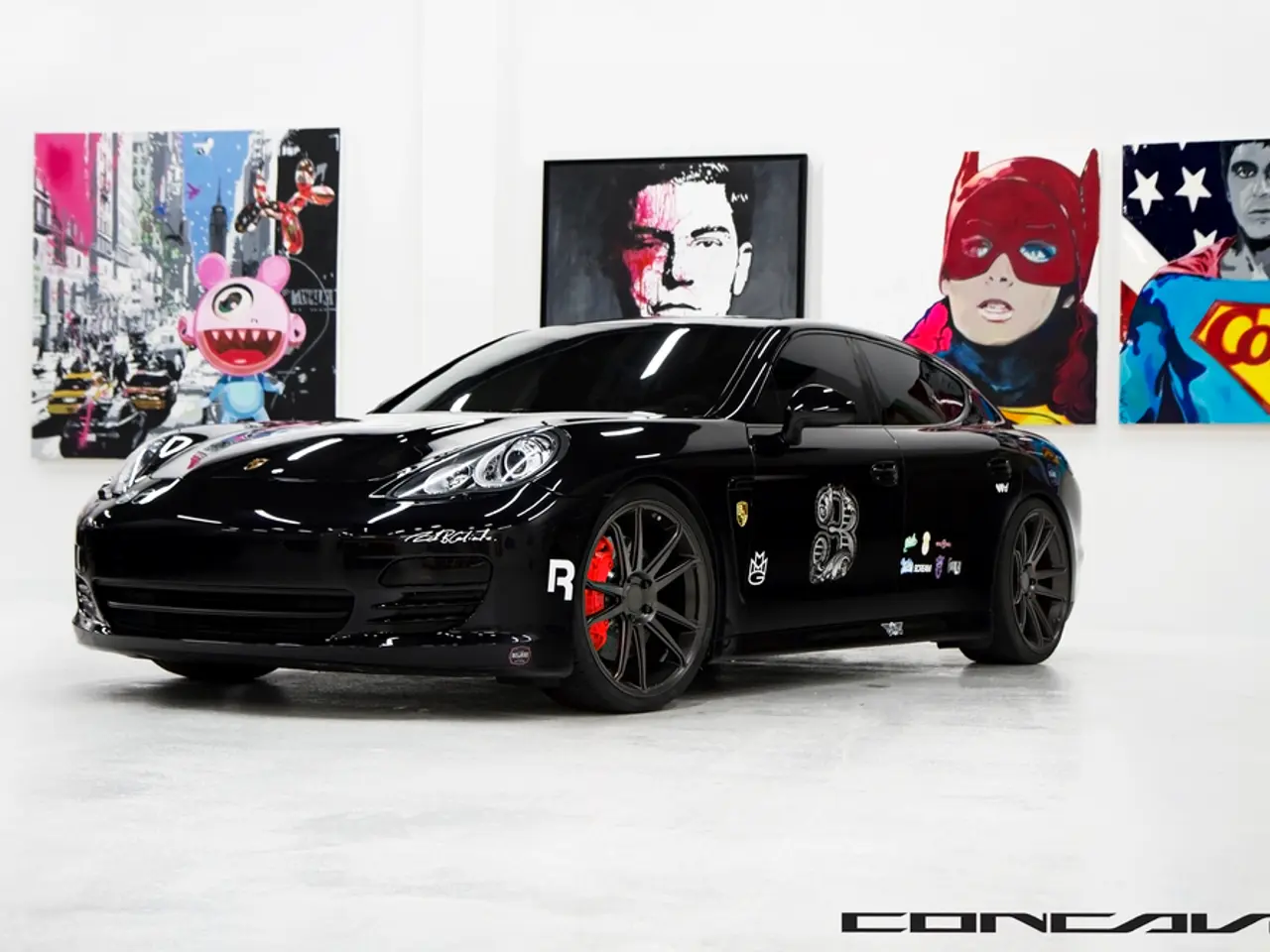Luxury sports car manufacturer Aston Martin's CEO, Adrian Hallmark, sketches out a vision for the brand's future
In the rapidly expanding market for luxury cars, Aston Martin is gearing up for a significant transition. Under the leadership of CEO Adrian Hallmark, the iconic British automaker is steering towards electrification, aiming to strike a balance between tradition and innovation.
Hallmark, who brings a wealth of experience from luxury car manufacturers like Bentley Motors, JLR, and Porsche, plans to make Aston Martin sustainably profitable for the first time in its 112-year history. The key to this transformation lies in the company's focus on 'value creation' rather than high volume, with a focus on marginal changes increasing margins.
The first step in this electrification journey is the introduction of hybrids, with the first volume model expected before the end of the decade. Aston Martin's hybrid offering will be spearheaded by the Valhalla, a plug-in hybrid car with an estimated starting price of £850,000. The PHEV generation will source engines from Mercedes-AMG, while the hybrid battery and gearbox will come from elsewhere.
Aston Martin is also investing heavily in research and development to reduce the weight of electric vehicles. This includes the use of 3D printed components, new battery chemistry, and other innovations. To create a visceral driving experience, the company is exploring the possibility of making car body structures vibrate to simulate a V12 engine feeling, while synthetic engine sounds are rejected.
The company's commitment to electrification is further evident in its plans to launch its first all-electric vehicle no earlier than 2026. This electric car will not be a re-badged Lucid Gravity, as some might speculate. Aston Martin's electric car partner is America's Lucid.
While Aston Martin is focusing on electrification, it is not abandoning its roots. The company is developing more variants of its existing models and focusing on optional extras and bespoke details to encourage customers to spend more. Aston Martin also plans to go even further upmarket to capture a larger share of the luxury market.
In addition to its automotive endeavours, Aston Martin is also expanding brand extensions, particularly in real estate and design. The company is committed to providing its customers with a lifestyle experience that goes beyond just owning a car.
Adrian Hallmark understands the challenges and opportunities presented by the shift towards electric vehicles. He believes that there are two types of customers when it comes to EVs: those who dislike them due to being told to buy them, and those who are pro-EV and are growing in number. Hallmark aims to cater to both segments, providing a range of options and experiences that appeal to a wide audience.
While the exact timeline for the phase-out of internal combustion engine (ICE) cars is uncertain due to politics, Aston Martin is committed to its electrification journey. So far, only Rolls-Royce has ventured into the world of pure EVs with the Spectre. As Aston Martin moves forward, it is poised to make a significant impact in the luxury electric vehicle market.
Read also:
- Impact of Alcohol on the Human Body: Nine Aspects of Health Alteration Due to Alcohol Consumption
- Understanding the Concept of Obesity
- Lu Shiow-yen's Challenging Position as Chair of the Chinese Nationalist Party (KMT) Under Scrutiny in Donovan's Analysis
- Tough choices on August 13, 2025 for those born under Aquarius? Consider the advantages and disadvantages to gain guidance




